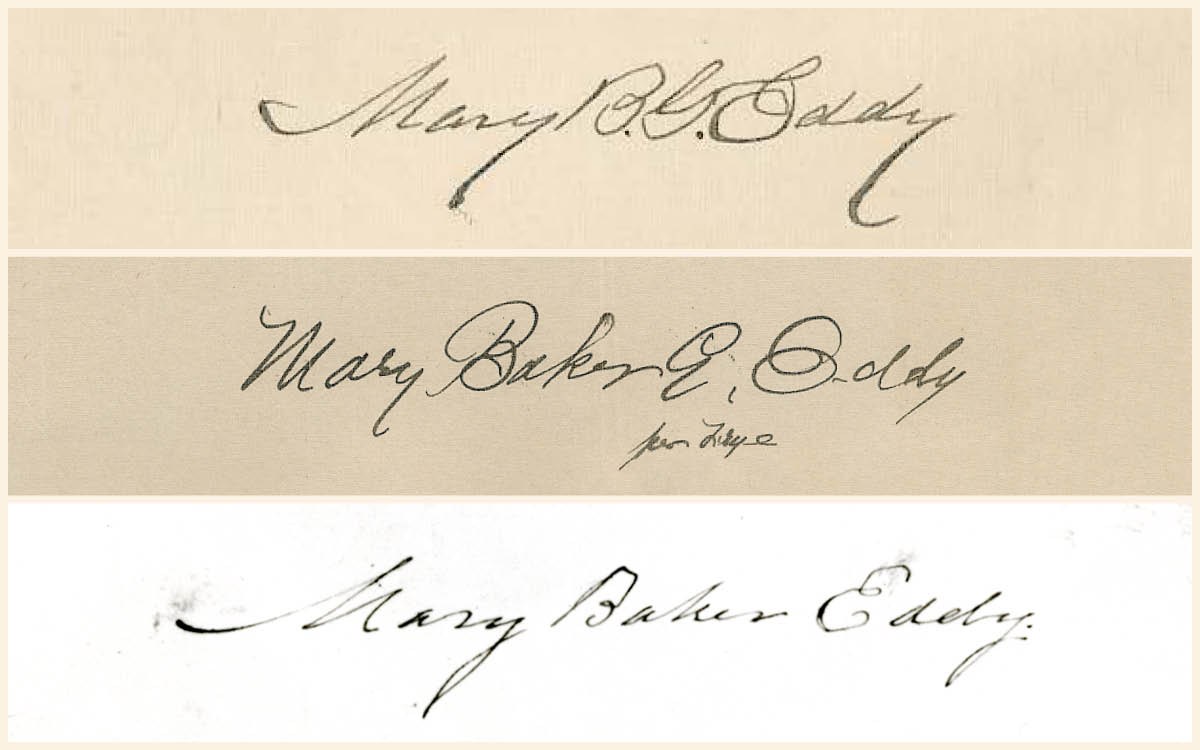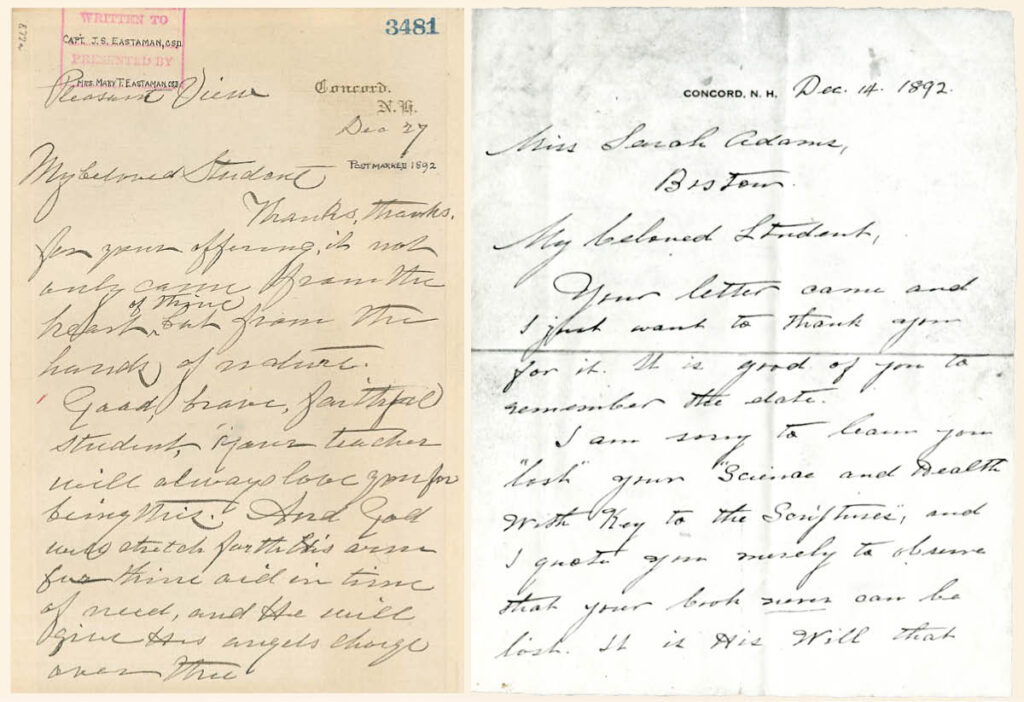From the Collections: Forged documents

From top to bottom: Authentic signature of Mary Baker Eddy, 1892. L03481. Proxy signature of Calvin Frye, Eddy’s longtime secretary, signing on her behalf. L13126. Forged signature, n.d.
In carrying out its mission, The Mary Baker Eddy Library strives to be an authoritative source of information on Mary Baker Eddy and Christian Science. One way our archivists, librarians, and researchers work to do this is by authenticating the items in our collection. We are often asked whether specific statements or writings can be attributed to Eddy. Sometimes this question of authenticity relates to whether or not a document was actually handwritten by her.
One particular kind of inauthentic material involves forged letters and other documents. As with many prominent individuals, opportunists have created fake letters and attributed them to Eddy, attempting to sell them to unsuspecting buyers. Sometimes these forgeries come up at auction or are offered for sale to the Library itself.
Over the years one such letter has surfaced periodically in a few different forms. It is an alleged letter from Eddy to either Julia Adams or Sarah Adams, dated December 14, 1892. The most common version is four pages—one sheet of paper, folded in half to make four sides.
This letter begins “My beloved student” and discusses a prior letter from the addressee, who has lost a copy of Eddy’s textbook, Science and Health with Key to the Scriptures. She also instructs Adams to tell a friend about how to apply for Christian Science class instruction and directs any questions for her to The Christian Science Journal.
While at least three versions of this letter exist, all have commonalities and appear in the same unknown handwriting.
From left to right: Authentic letter from Mary Baker Eddy, beginning “My beloved Student,” 1892. L03481. Forged letter with an unverified 1892 date, n.d.
The letter is suspect, in that the handwriting neither matches that of Eddy nor any of her known secretaries or others who wrote letters on her behalf. Also unusual is the fact that the full book title is written out twice; Eddy rarely corresponded about her book as “Science and Health with Key to the Scriptures,” most often just calling it “Science and Health” or “the textbook.”
As well, we have no letter from this period in the Library’s robust Incoming Correspondence collection from an individual by the name of Julia Adams or Sarah Adams. Noting these characteristics has allowed previous archivists to determine that these letters were forgeries.
The creator of this series of forged letters is unknown. However, one prominent forger of letters by Eddy was known as Joseph Cosey. A small-time crook-turned-forger during the Great Depression, he specialized in documents by Abraham Lincoln. G. William Bergquist, an employee of the New York Public Library (NYPL), uncovered Cosey’s work in 1934. One particular letter that Cosey forged purports to be from Eddy to Sarah Dean, written on March 21, 1905. It, too, refers to Science and Health by its full title.
Over time Cosey’s forgeries were themselves recognized as historic manuscripts. In fact, they make up much of the NYPL’s Forgeries Collection.1
The Mary Baker Eddy Library does not perform outside appraisal and does not authenticate documents outside our collections. Nevertheless, our Research staff does often work to identify the veracity of statements attributed to Eddy. For more information, see the Authentications section on our website, or submit a research request.
To read more on the subject of authenticating documents, read “From the Collections: A forensic analysis of Calvin Frye’s diaries.”
This article is also available on our French, German, Portuguese, and Spanish websites.
- John Kobler, “Yrs. Truly, A. Lincoln,” The New Yorker, 17 February 1956, https://www.newyorker.com/magazine/1956/02/25/yrs-truly-a-lincoln


